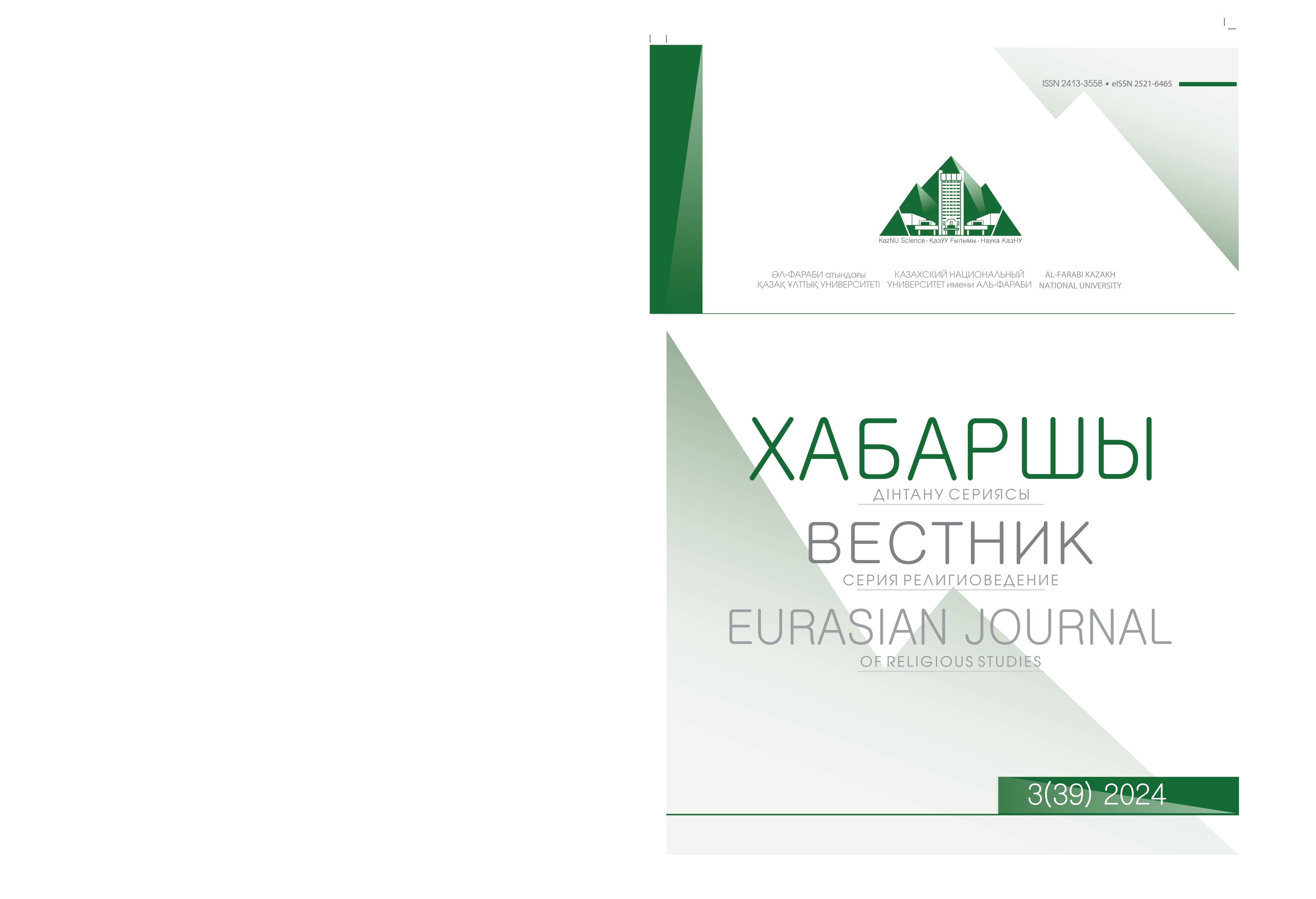Cultural and creative paradigms in the development of the educational potential of the individual in Islam
DOI:
https://doi.org/10.26577//EJRS.2024.v39.c3.r3Abstract
The impact of culture-forming aspects of Islam on the formation of educational culture of the individual, on the one hand, becomes relevant in the light of the existing need for epistemological research of the general essence of the role of Islam in this sphere of cultural production. On the other hand, an important direction becomes the disclosure of the peculiarities of the socio-cultural context of Kazakhstan within the framework of this issue, which to a large extent remains insufficiently researched. The main goal of the study is to systematically assess the main paradigmatic structures of Islam in Kazakhstani society, which form the educational culture of the individual and determine its potential in the educational process. Within the framework of the sociological approach, semi-formalised interviews were conducted in order to identify common institutional factors affecting the educational and upbringing environment of Kazakhstan residents related to Islam. In order to analyse the value structure of the residents of Kazakhstan and its relationship with Islamic teachings, psychological testing was conducted using a portrait value questionnaire based on the Schwartz methodology. In the course of theoretical and empirical analysis, six main culture-forming paradigms were identified that directly influence the educational potential of Kazakhstan residents: the paradigm of moral values, the paradigm of research and search for new knowledge, the paradigm of tolerance and respect for differences, the paradigm of social responsibility, the paradigm of moderation, the paradigm of respect for elders (including teachers). The culture-forming paradigms identified in the course of the study demonstrate not only consistency with the religious aspects of Islam, but also have a significant impact on the formation of values, morality and cultural identity in modern Kazakhstan.
Keywords: religious education, educational culture, educational process, morality, values.













